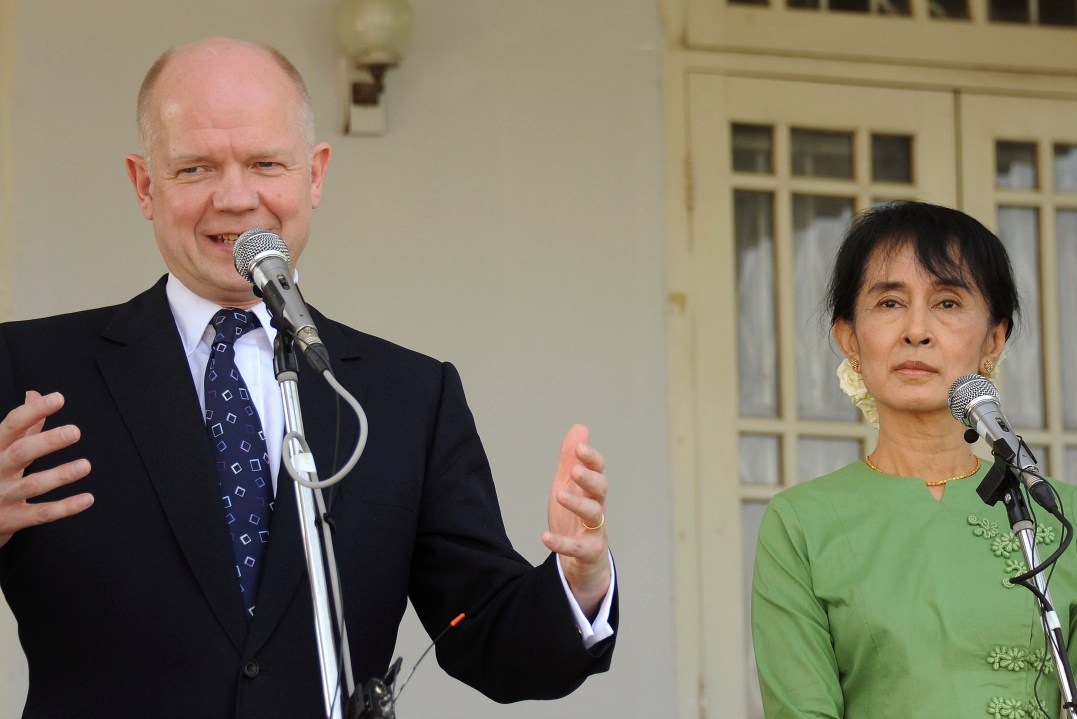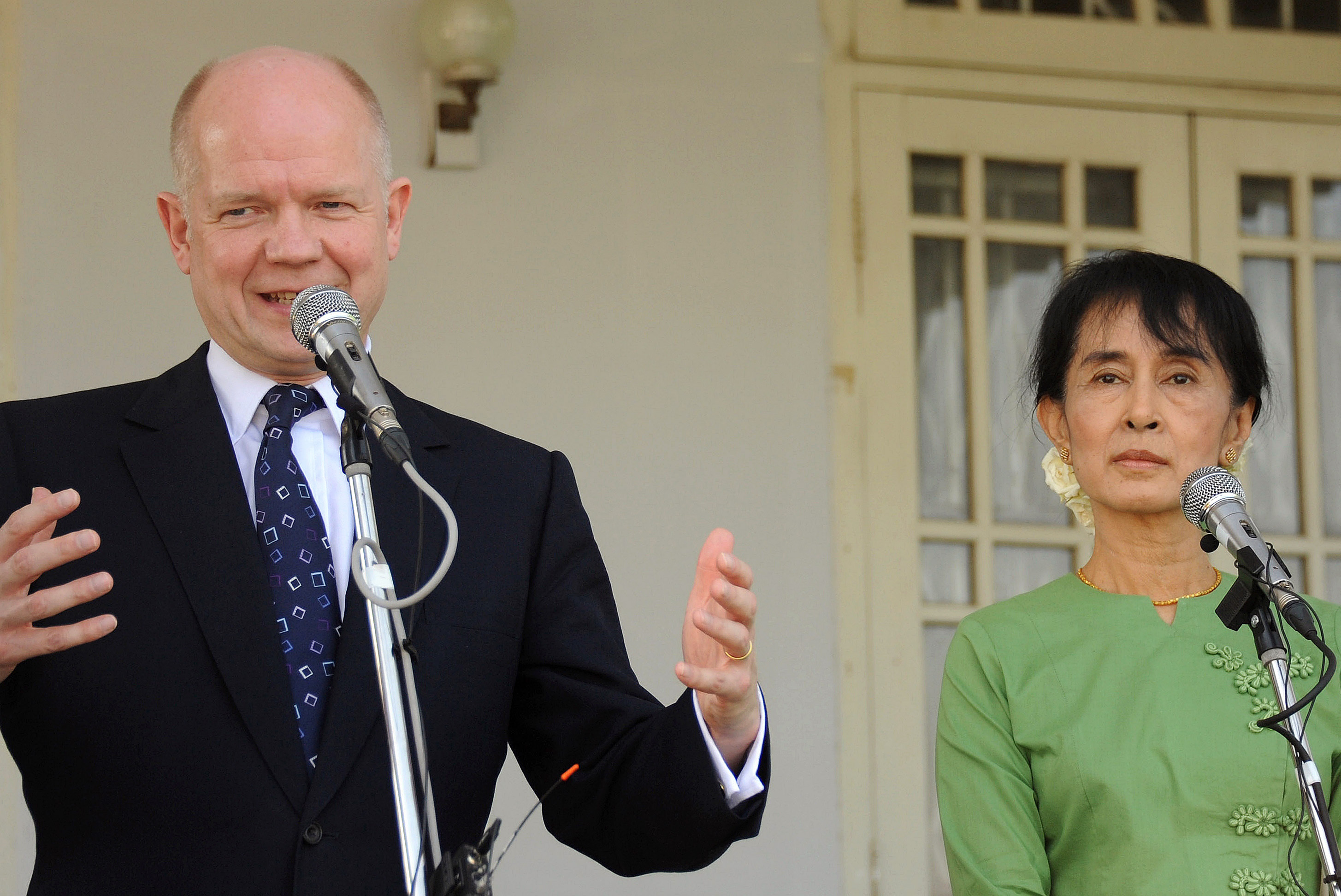Foreign policy specialists have been confused about how to categorise the coalition. Is it neoconservative, given its backing for the Libyan rebels? No, says no less a figure than the Prime Minister. Is it realpolitical, given the PM’s willingness to make up with Russia and court China? Most No.10 officials would wince at such a description. So what is it?
To answer the question, look no further than William Hague’s trip to Burma last week. Not only was it the first visit by a British foreign minister since 1955, but it was also the culmination of little known, high-level, behind-the-scenes outreach to Aung San Suu Kyi by No 10 and concomitant pressure on the Burmese junta. And it seems to be paying off. Though the hard-line Burmese foreign minister sought to push back against reforms during Hague’s visit, the reformist part of the junta — including president Thein Sein — appears to be marching on. As Hague pointed out after several meetings and dinners with Aung San Suu Kyi, the Burmese government still needs to do more, especially if they want sanctions relaxed. But progress, however slow, seems to be happening.
This is what the government wants its promotion of democracy to be like — often behind-the-scenes, careful not to appear imperial, but potentially more effective than the Blairite version. As the then Foreign Secretary said in the Aung San Suu Kyi Lecture three years ago, ‘I understand the doubts about Iraq and Afghanistan… But my plea is that we do not let divisions over those conflicts obscure our national interest… in supporting movements for democracy.’







Comments